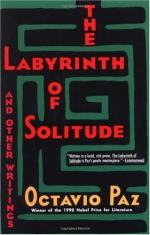|
This section contains 515 words (approx. 2 pages at 400 words per page) |

|
Chapter 8 Summary and Analysis
The Mexican revolution was the first revolution of the twentieth century but failed to create order in a just and free society. It was to transform Mexico into a modern society, accomplishing what took a hundred years of proletarian struggle in Europe and the United States. While Western countries became modernized in a natural way, Mexico achieved the end of feudalism through the redistribution of lands, irrigation, and agrarian projects.
Despite these achievements, the rural population continues to suffer poverty. Insufficient economic progress, overpopulation, underemployment, and insufficient resources contribute to other difficulties in Mexico. New institutions and new bourgeoisie emerged, strengthening the middle class that began to replace revolutionaries and industrialists. As corrupt leaders are overthrown, the conflict between nationalism and imperialism continues while national capitalism emerges. Partial state direction and economic intervention allows Mexico to be the fastest in progress...
(read more from the Chapter 8 Summary)
|
This section contains 515 words (approx. 2 pages at 400 words per page) |

|




